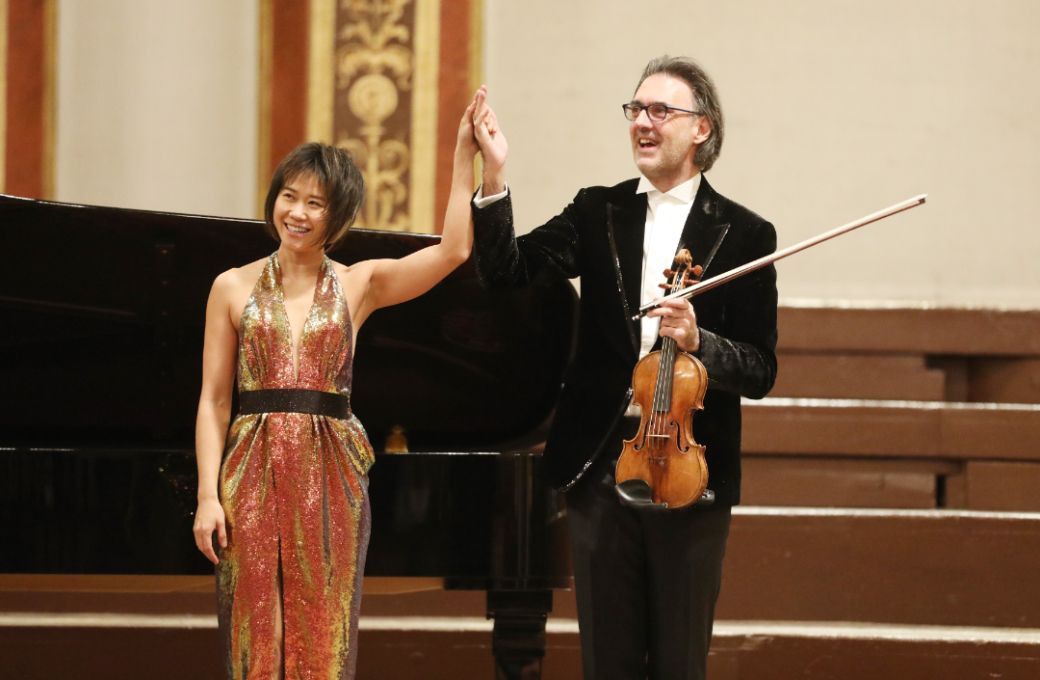Intuitively, Yuja Wang and Leonidas Kavakos seem like a chamber music mismatch; a odd pairing of two world-class soloists designed by an agent who does not know any better than to throw two stage persona opposites in terms of extroversion and introversion together. Last night at the Musikverein, however, they defied the naysayers yet again, warming into a fascinating recital that kept improving as the evening continued. What was particularly gratifying is that instead of seeming like two trains running on independent tracks, unity of vision in their interpretation was in full evidence throughout.

The program was hefty; three major sonatas for violin and piano by Brahms, Janáček and Schumann, paired with three sizeable encores including Bartók's First Rhapsody. Brahms' First Violin Sonata, nicknamed “Regenlied” because of the many themes drawn from his eponymous song, is the opposite of extroverted – the melancholy dripping of tears and quiet interiority of the piece are anathema to the magnificent exteriority of the Musikverein’s Großer Saal. Wang, outshining even the hall in iridescent gold, musically disappeared behind Kavakos’s slender sound, which itself lacked some of his characteristic precision. This might have worked better in a more intimate hall, but it also seemed like the duo had not yet settled; the gods are human too, it would seem. Then again, not many artists use a Brahms sonata as a warm-up in concert!
With Leos Janáček’s sole sonata, the world had already changed completely. Composed as Europe was fragmenting in the Great War, it is an inspired, virtuosic conversation comprised of oscillating cells and motifs against angular, melodic content, which moves between the tonal and the pseudo-pentatonic. Each musical partner is alternately offered the chance to speak and to comment. Both seemed to let go here more in terms of sound, and the pair were suddenly on equal footing and also more at ease, taking turns sounding off, pausing and commenting. Kavakos, who has the best bow arm in the business, was able to stun with his control in the second movement, and the third movement was explosive from Wang, the fourth haunting from both – Kavakos’ muted commentary to Yang’s elegiac tunefulness a highlight. If this does not inspire more instrumentalists to take up Janáček’s masterpiece, I do not know what will.
Schumann’s Violin Sonata no. 2 in D minor then brought the house down. Kavakos’ tone, warm, precise and nuanced, dug deep, Wang’s equally grounded sound, paired with boundless control and energy, produced a splendid opening movement that fairly gleamed. Their easy virtuosity rendered the second movement, which can easily plod, pure excitement. The atmospheric hymn of the third movement was lovely, though I did wish they would trust the simplicity of the unaffected theme which holds throughout the first two variations to better set up the shock that arrives with the third variation, which is absolute beauty and fireworks. The finale left little to be desired, it was a study of sound, virtuosity and using dynamics to create an overarching architecture that was richly satisfying. The deafening applause was enough to draw the pair out of the wings for three meaty encores before waving the audience off to their beds, fully satisfied.


